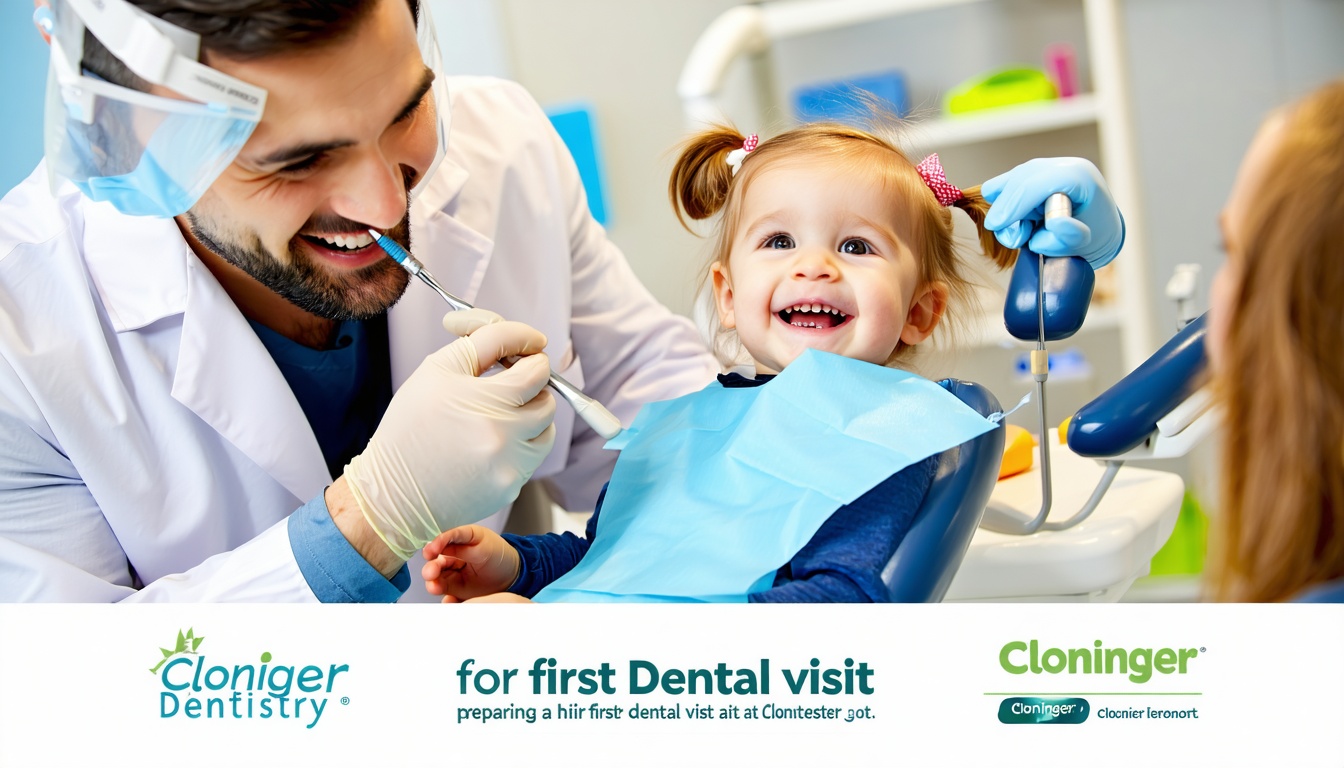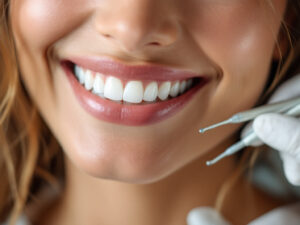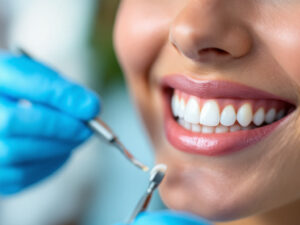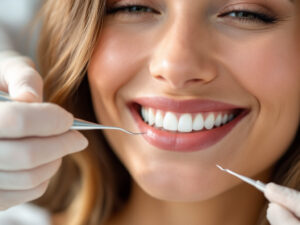Importance of Early Dental Visits
Timing of First Dental Visit
Establishing a solid foundation for oral health starts with early dental visits. The American Academy of Pediatric Dentistry recommends scheduling a child’s first dental appointment no later than their first birthday, or within six months after the first tooth emerges. Early visits are essential for catching potential dental issues early and getting children accustomed to the dental environment. A study indicates that more than 1 in 4 children in the U.S. have experienced at least one cavity by age four, highlighting the importance of these early evaluations (Nationwide Children’s Hospital).
| Age | Recommended Dental Visit Timing |
|---|---|
| 6 Months | Within 6 months of first tooth |
| 1 Year | By first birthday |
Benefits of Early Dental Care
The advantages of early dental check-ups extend beyond mere visits. These appointments not only help prevent cavities and gum issues but also allow parents to gain valuable insights into proper oral care practices. During these visits, pediatric dentists focus on educating parents about critical practices such as daily brushing and flossing techniques tailored for babies. Dietary counseling is often part of the conversation to promote tooth-friendly eating habits (Hurst Pediatric Dentistry).
- Discovering early signs of decay during the first dental visit can significantly lower the risk of cavities in children. Addressing these signs promptly can prevent more severe issues down the line.
- Pediatric dentists often use interactive techniques, including the knee-to-knee position, to assess your child’s growth and development in a comfortable manner. This setup allows for a thorough examination while keeping your child at ease (Nationwide Children’s Hospital).
Understanding how to prepare your child for their first dental visit is crucial. It lays the groundwork for positive, lifelong oral health habits. Early intervention and guidance from a pediatric dentist ensure that children’s dental health is off to a good start, paving the way for a healthier smile as they grow. For more tips and strategies, we encourage you to explore the importance of routine dental check-ups and cleanings and discover how pediatric dentistry shapes lifelong oral health habits.
What to Expect at a Child’s First Dental Visit
Understanding what happens during a child’s first dental visit can ease parental concerns and help prepare both the child and the parents for the experience. This visit typically lasts 30 to 45 minutes and involves several key components.
Examination Procedures
During the first dental appointment, the pediatric dentist will conduct a comprehensive examination of the child’s teeth, jaws, bite, gums, and oral tissues. This assessment allows us to evaluate the child’s growth and development. The dentist will often use a knee-to-knee position to create a comfortable atmosphere while checking the child’s mouth.
Key examination procedures include:
| Procedure | Description |
|---|---|
| Full oral exam | Assesses teeth and gums for any issues |
| Growth assessment | Evaluates the development of oral tissues |
| Plaque cleaning | Uses a soft toothbrush to remove plaque |
| Fluoride treatment | May apply a topical fluoride treatment as needed |
Cleaning and Treatments
A gentle cleaning may be performed during this initial visit, where the dentist will remove plaque from the child’s teeth. It’s also an opportunity for the dentist to demonstrate proper cleaning methods that parents can use at home, such as brushing and flossing techniques. Depending on the individual child’s risk of tooth decay, the dentist might recommend fluoride treatments (Nationwide Children’s Hospital).
Educating Parents
An essential aspect of the first dental visit is educating parents about their child’s oral health. This includes providing tips on daily brushing and flossing techniques, dietary counseling, and guidance on promoting tooth-friendly eating habits for children. The pediatric dentist will likely discuss any questions or concerns related to the child’s oral care routine and development, enhancing parents’ understanding of maintaining good oral hygiene at home (Hurst Pediatric Dentistry).
This visit not only assures parents about their child’s oral health but also sets the stage for a lifetime of good dental habits. The American Association of Pediatric Dentists recommends that children have their first dentist visit no later than their first birthday, making early intervention critical for a healthy smile.
Tips to Prepare Your Child for the First Dental Visit
Preparing for a child’s first dental visit can set the tone for their ongoing oral health. We can ensure a positive experience by following these tips.
Positive Communication
We should always use positive language when discussing the dentist. Avoid sharing any negative experiences, as children can pick up on our dental anxiety. Reassuring them that the visit is important for their smile can help cultivate a positive association with dentistry. Encourage your child to bring along a favorite toy, a special song, or a comforting phrase. Inform the dental team in advance so they can incorporate these elements to create a welcoming environment (Children’s Dental Center).
Morning Appointments
Scheduling morning appointments is beneficial as children tend to be more relaxed and less anxious earlier in the day. They may have more energy and be less likely to experience anxiety after a full day of activities. Additionally, morning visits give children the entire day to process the experience positively and adopt any new oral hygiene habits encouraged by the dentist.
Familiarizing with Dental Office
Familiarizing your child with the dental office can aid in easing their nerves. Consider taking them on a short visit prior to the appointment to meet the staff and see the environment. This allows them to acclimate to the sounds and sights of the office without the pressure of an examination. Practicing dental check-ups at home with toys can also effectively prepare them for the real experience. Reading children’s books or watching child-friendly videos about first dental visits can help alleviate any anxiety, giving them a clearer expectation of what the appointment entails.
Implementing these strategies can foster a positive first dental experience, helping to lay a strong foundation for lifelong oral health. To better understand the importance of routine dental check-ups, refer to our article on the importance of routine dental check-ups and cleanings.
Pediatric Dentists vs. Family Dentists
Understanding the difference between pediatric dentists and family dentists is essential when choosing dental care for our children. This section highlights the specialized care provided by pediatric dentists and the importance of their training.
Specialized Pediatric Care
Pediatric dentists focus exclusively on the dental needs of children, which includes managing specific behaviors, emotions, and developmental stages throughout childhood. They undergo two years of additional training post-dental school specifically in pediatric dentistry, enabling them to diagnose and treat various dental issues unique to infants and children (Hurst Pediatric Dentistry).
Table: Differences Between Pediatric and Family Dentists
| Feature | Pediatric Dentist | Family Dentist |
|---|---|---|
| Training | Specialized in child dentistry | General dentistry training |
| Focus | Child psychology and behaviors | All ages from infants to adults |
| Environment | Child-friendly facilities | General practice environment |
| Behavioral Management | Techniques for anxiety and fear | Limited child-focused strategies |
| Additional Services | Specialized guidance for oral habits | General dental services |
Pediatric dentists provide important guidance to parents on matters such as eliminating unwanted oral habits like thumb sucking or pacifier use. They help establish optimal oral care routines tailored to children’s needs (New Age Dental Health).
Importance of Pediatric Training
The specialized training that pediatric dentists receive is crucial for providing high-quality oral health care for children. Many general family dentists may lack the hands-on experience necessary for performing infant oral exams, which can lead to gaps in care (Hurst Pediatric Dentistry).
During your child’s first dental visit, a pediatric dentist emphasizes education for parents. They discuss proper oral care techniques, dietary choices influencing oral health, and other tailored strategies to promote tooth-friendly habits. This comprehensive approach ensures that our children develop good oral hygiene practices early on, setting them up for a lifetime of healthy smiles.
By choosing a pediatric dentist, we ensure that our children receive care from professionals dedicated to their specific developmental needs. This specialized focus can foster a positive dental experience that promotes long-term oral health habits. If you are ready to get started with a top-rated dentist, we are here to support you in every step of the way, ensuring that your child’s dental visits are positive and educational.
Preventive Measures for Children’s Oral Health
Ensuring good oral health for our children starts with preventive measures that set the foundation for their dental wellness. Implementing fluoride treatments, daily oral care tips, and dietary recommendations can significantly contribute to maintaining their smiles.
Fluoride Importance
Fluoride plays a vital role in preserving children’s dental health. It strengthens tooth enamel and helps prevent cavities. Ensuring that children receive the right amount of fluoride is essential for their development and oral hygiene. Studies indicate that fluoride can reduce the risk of tooth decay by up to 40% in children.
| Fluoride Source | Recommended Frequency |
|---|---|
| Fluoride toothpaste | Twice daily |
| Professional fluoride treatment | Every 6 months (during check-ups) |
For more information on fluoride treatments, visit our article on the role of fluoride treatments in preventing tooth decay.
Daily Oral Care Tips
Establishing a consistent oral care routine is crucial for our children. This includes brushing, flossing, and regular dental visits. Pediatric dentists emphasize the importance of educating parents about effective oral care practices.
| Activity | Age Group | Recommended Frequency |
|---|---|---|
| Brushing | Under 3 | Once daily (with supervision) |
| Brushing | Ages 3 to 6 | Twice daily |
| Flossing | Ages 6 and up | Once daily |
For detailed cleaning tips, check out our article on tips for maintaining optimal oral hygiene at home.
Dietary Recommendations
Dietary habits significantly affect oral health. We should encourage our children to avoid sugary fluids that can lead to cavities, such as juices and sodas. Instead, promoting healthy eating habits can help maintain strong teeth.
| Foods to Promote | Foods to Limit |
|---|---|
| Fresh fruits and vegetables | Sugary snacks and drinks |
| Dairy products like cheese and yogurt | Starchy foods (e.g., chips) |
| Whole grains | Candy and sweets |
Pediatric dentists often counsel parents on tooth-friendly eating habits during dental visits. For more insights, visit our article on how pediatric dentistry shapes lifelong oral health habits.
By incorporating fluoride, maintaining a daily oral routine, and offering nutritious foods, we can effectively support our children in achieving optimal oral health. Prioritizing these preventive measures will help them develop healthy habits that last a lifetime.
Scheduling and Follow-Up Care
Regular dental visits are essential for maintaining your child’s oral health. We must understand the frequency of these visits, follow-up care recommendations, and how we can support each other as parents by addressing any concerns.
Frequency of Dental Check-Ups
The frequency of dental check-ups for children can vary based on individual needs. Most dental professionals suggest that children visit the dentist every six months, but some may require more frequent visits (every 3 months) depending on their dental health. It is important to consult with our child’s dentist to establish an appropriate schedule tailored to their specific requirements. According to the American Academy of Pediatric Dentistry, children should have their first oral health checkup by their first birthday or when their first baby teeth begin to emerge.
| Age Group | Recommended Check-Up Frequency |
|---|---|
| 0-1 years | By their first birthday |
| 1-3 years | Every 6-12 months |
| 3+ years | Every 6 months or as advised |
Follow-Up Recommendations
After a child’s initial dental visit, follow-up appointments may be recommended depending on the findings during the examination. These appointments could include monitoring dental development, addressing cavities, or providing preventive treatments like fluoride applications or sealants. Staying in close contact with our pediatric dentist allows us to ensure that our children’s dental health remains on track.
We should also keep an open line of communication with our dental professionals. Should any concerns arise regarding our child’s oral health, recommendations can be tailored based on those specific needs. Following up on any treatment plans and maintaining regular visits can help create positive dental experiences for our children.
Addressing Parental Concerns
As parents, it’s natural to have questions and concerns about our child’s dental health. We can alleviate anxiety by having open discussions with our child’s dentist during appointments. We should not hesitate to ask questions about:
- The importance of routine dental check-ups and cleanings the importance of routine dental check-ups and cleanings
- The role of fluoride treatments in preventing tooth decay the role of fluoride treatments in preventing tooth decay
- Effective oral hygiene practices to maintain at home tips for maintaining optimal oral hygiene at home
By staying informed and involved, we can take proactive steps toward ensuring the long-term health of our children’s smiles and supporting their journey towards positive oral health habits.










